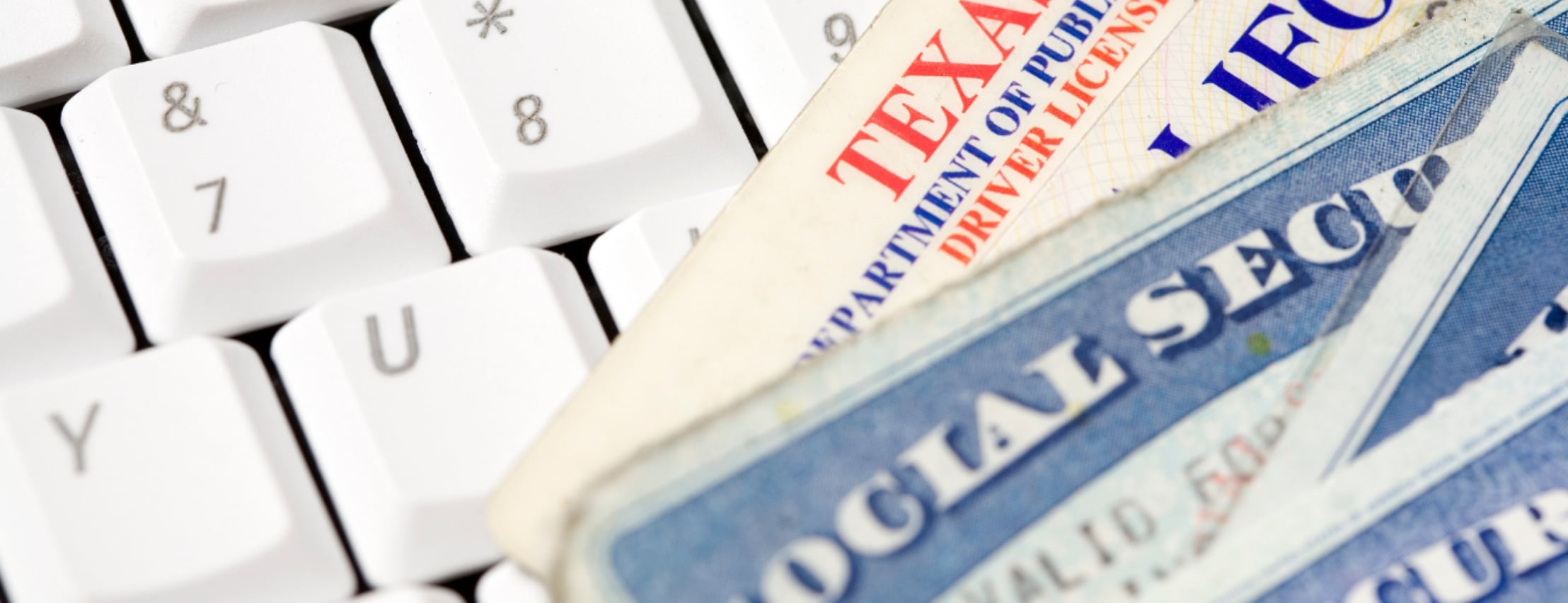Preventing Identity Theft

According to the ABA Education Foundation, identity theft is one of the fastest-growing types of financial fraud. Without stealing your wallet, a crook can steal your financial identity with as little information as your social security number. It is also called “account-takeover fraud” or “true-name fraud,” and it involves crooks’ assuming your identity by applying for credit, running up huge bills and stiffing creditors — all in your name.
Take these steps to protect yourself:
1. Order copies of your credit report once a year to ensure they are accurate. You can call each of the three national credit-reporting agencies because each may contain different aspects of your credit history, or you can contact the Annual Credit Report Service for one free credit report each year.
2. If you have been denied credit in the past 60 days, the credit-reporting agency that sent the report to your prospective creditor must provide you with a copy of the report for free. However, it will not be sent automatically so you have to request a copy from the credit-reporting agency.
AnnualCreditReport.com: 1-877-322-8228 or annualcreditreport.com
Equifax: 1-800-685-1111 or equifax.com
Experian: 1-800-311-4769 or experian.com
TransUnion: 1-800-916-8800 or transunion.com
3. Keep an eye on your accounts throughout the year by reading your monthly/periodic statements thoroughly. That’s an easy way for you to be sure that all of the activity in your accounts was initiated by you.
4. Tear up or shred pre-approved credit offers, receipts, and other personal information that link your name to account numbers. Don’t leave your ATM or credit card receipt in public trash cans. Crooks (a.k.a. dumpster divers) are known to go through trash to get account numbers and other items that will give them just enough information to get credit in your name.
5. If your credit card or other bills are more than two weeks late, you should do three things: First, contact the Postal Service to see if someone has forwarded your mail to another address. Second, contact your bank to ask if the statement or card has been mailed. Third, contact the businesses that send you bills.
6. When you pay bills, don’t put them in your mailbox with the red flag up. That’s a flashing neon light telling crooks to grab your information. Use a locked mailbox or the post office.
7. Protect your account information. Don’t write your personal identification number (PIN) on your ATM or debit card. Don’t write your social security number or credit card account number on a check. Cover your hand when you are entering your PIN number at an ATM.
8. Don’t carry your Social Security card, passport, or birth certificate unless you need it that day. Take all but one or two credit cards out of your wallet, and keep a list at home of your account information and customer service telephone numbers. That way, if your wallet is lost or stolen, you’ll only have to notify a few of your creditors and the information will be handy.
9. Never provide personal or credit card information over the phone, unless you initiated the call. Crooks are known to call with news that you’ve won a prize and all they need is your credit card number for verification. Don’t fall for it. Remember the old saying, “If it sounds too good to be true, it probably is.”
TAKE ACTION IF YOU ARE A VICTIM:
1. Financial fraud is a crime; call your local police department.
2. Contact the fraud units of all three credit bureaus. Ask them to “flag” your account, which tells creditors that you are a victim of identity fraud. Also, add a victim’s statement to each of your credit bureau reports that asks creditors to contact you in person to verify all applications made in your name. Call the fraud units of the credit bureaus at:
TransUnion Fraud Assistance Department: 800-680-7289
Equifax Fraud Assistance Department: 800-525-6285
Experian Fraud Assistance Department: 888-397-3742
3. Call the Federal Trade Commission’s ID Theft hotline at 1 (877) IDTHEFT. The hotline is staffed by counselors trained to help ID theft victims. Check out the FTC website, which includes an Identity Theft Affidavit to help simplify the process of clearing up accounts opened by an identity thief.
4. Notify your banks. They can help you obtain new account numbers for all of your checking, savings, and other accounts. Be sure to pick a new PIN number for your ATM and debit cards. Close all of your credit card accounts and open with new account numbers.
5. Notify the Postal Inspector if you suspect mail theft — a felony.
6. Depending on your situation, you may want to contact the Social Security Administration to get a new Social Security number. Their telephone number is 800-772-1213. You also may want to contact your telephone, long distance, water, gas, and electrical companies to alert them that someone may try to open an account in your name.
7. Finally, make sure to maintain a log of all the contacts you make with authorities regarding the matter. Write down each person’s name, title, and phone number in case you need to re-contact them or refer to them in future correspondence.

